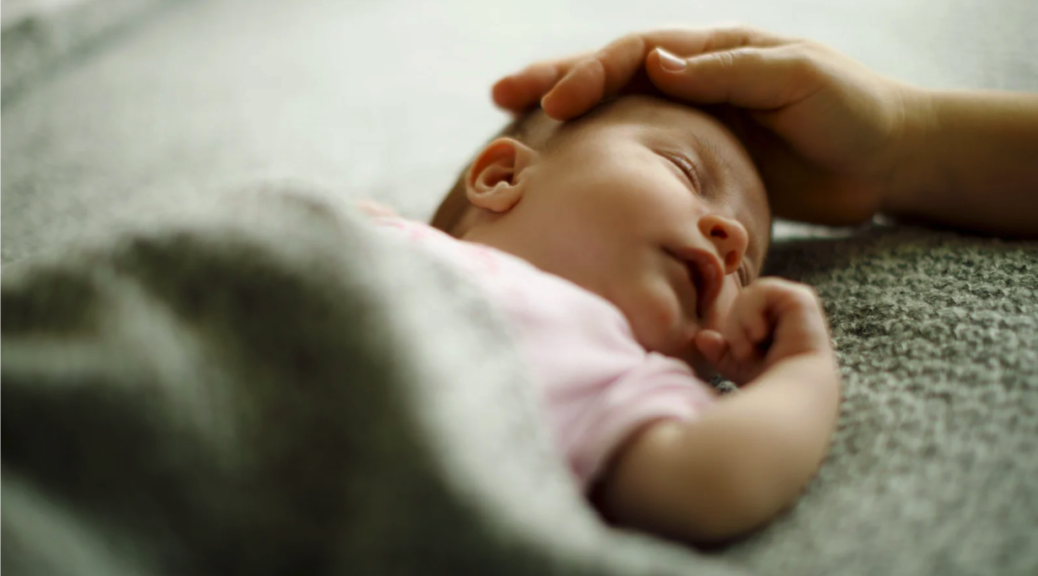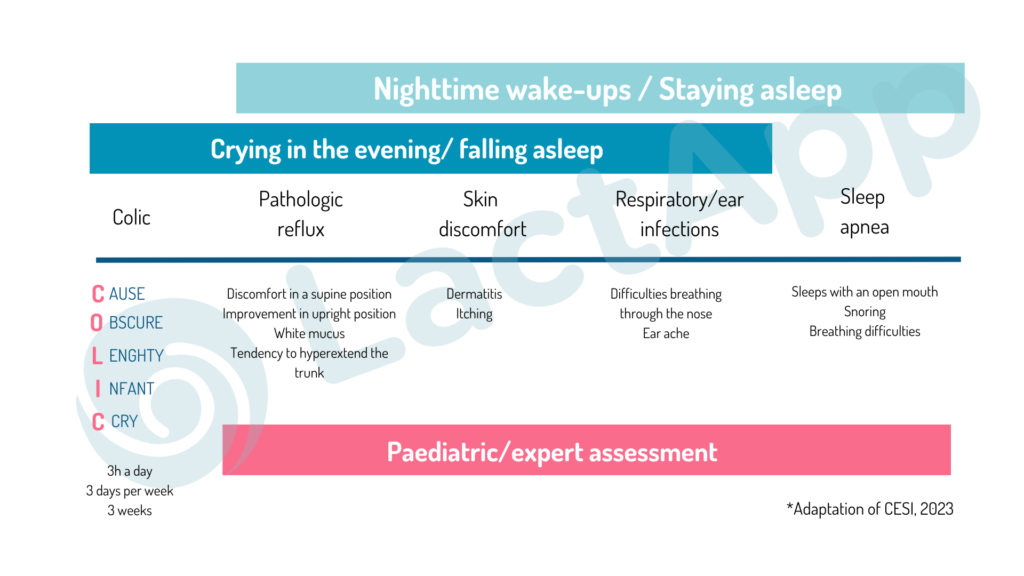
Physical causes affecting infant sleep
Much has been written about infant sleep. There is a generalized belief on how infant sleep should be. Often, this is very far from reality. In consultation, you will quickly come across families who are desperate because their children do not sleep through the night or because they wake up often. They ask you what they are doing wrong and how they can get their babies to sleep through in their crib or side sleeper cot.
We know that infant sleep develops gradually, that multiple wake-ups are normal, that the circadian rhythm is not established until about 6 months of the baby’s age, and that there is no age where they start sleeping through the night. In addition, sleep studies on infants are limited, and they are usually done with formula-fed infants. No sleep-associated pathologies are described before 6 months of age.
However, when a family comes to the consultation room because of sleep difficulties, it is essential to listen to them. Sleep can be like breastfeeding: it helps to rule out physical illnesses or situations occurring at that moment.
Below, we will list a few situations in which infants may have increased wake-ups or difficulty falling asleep. Some of these situations are:
Colic
There are controversies around the topic of colics, and expert opinions are conflicting. Families can be very desperate. The diagnosis of colic should be made once other possible causes of crying have been ruled out. We know that colic is a benign condition in which the infant cries inconsolably for a long time, usually around the same time. Due to the name, it is easily thought that the causes of this are intestinal pain or discomfort when, in fact, the etiology is unknown. There is also the added paradox that there are areas in the world where colics are not described in the infant population.
GERD (gastroesophageal reflux disease)
Most infants will have gastroesophageal reflux at some point, but it will not cause further problems. It is known that the cardia, the esophageal-gastric valve, is immature and easily allows the return of gastric contents to the upper tract without causing further problems. But for a percentage of infants, this situation causes esophagus inflammation, which causes discomfort and compromises their well-being, and it sometimes requires treatment.
Pathological gastroesophageal reflux can be related to infant allergies and also to breast milk hyperproduction, often due to suboptimal sucking during breastfeeding.
Skin discomfort
Skin discomforts such as diaper rash can cause difficulties for the infant in falling asleep or staying asleep. Also, skin irritations due to clothing, cold, heat, and other things can interfere with their sleep. An assessment of the skin condition is essential when a family explains an increase in wake-ups.
Respiratory tract and ear infections
It is known that the decubitus (lying down) position can increase ear pain. It also makes breathing more difficult in case of nasal mucus. Episodes of coughing and dyspnea also get worse and may cause sleep difficulties.
Sleep apnea
Sleep apnea is often related to ankyloglossia. Sleep apnea can occur when the infant sleeps with the mouth open, breathing through the mouth. A restrictive sublingual frenulum (tongue-tie) or hypotonia of both tongue and mouth muscles can cause this situation. Assessment by an expert professional, often requiring a transdisciplinary team, may be necessary.

References
Berrozpe, María, La neurociencia de Sueño Infantil y sus implicaciones en la práctica y atención a las familias.Centro de Estudios del Sueño Infantil (CESI). 2022.